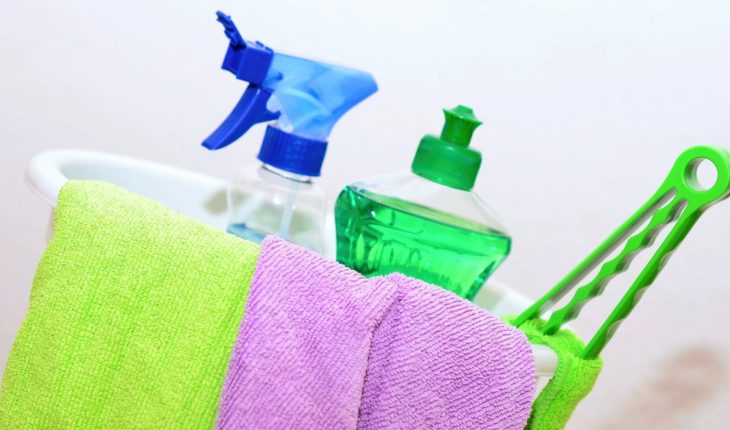If during these days at home you have dedicated yourself to thoroughly cleaning and combining chemicals to make everything squeak, we have news for you: this is very dangerous.
Carlos Antonio Rius Alonso, academic at the Faculty of Chemistry (FQ) of UNAM explained that combining substances such as chlorine, vinegar, or alcohol is dangerous because many are not compatible and can produce substances that affect us.
It indicated that the products come with their usage specifications, and that they served without the need to combine them. One of the most used is chlorine.
Read: Washing and disinfecting vegetables depending on their type
“To mop floors or clean walls can be used in a diluted solution of 20 milliliters in one liter of water, but it should not be mixed with other cleaning products, and the area must be ventilated. What you can do is clean with chlorine, let the water evaporate and then mop with a multipurpose cleaner,” he said.
What you shouldn’t combine chlorine with
The chemical explains that chlorine in its natural state is a gas, and tablet becomes liquid; an alkaline solution with sodium hydroxide or soda is used in water and sodium hypochlorite is formed.
“For home use, sodium hypochlorite is five percent, and if mixed with some acid such as lemon, vinegar or cleaning products containing hydrochloric acid, the soda it contains and generates gaseous chlorine, which is highly toxic, is neutralized.
Chlorine is very oxidizing, produces severe burns, respiratory arrests and affects the mucous membranes of the nose, mouth and lung,” rius Alonso warned.
Find out: If you live in CDMX so you have to separate the garbage in COVID-19 times
Another substance that should not be mixed with chlorine is alcohol, because combining them results in chloroform, a chemical compound that stops the diaphragm, the main muscle responsible for breathing, which would cause a respiratory arrest.
In addition chloroform is toxic to the liver and in the long term could lead to cancer.
If ammonia cleaners are combined with chlorine they generate chloramines, which in addition to being very toxic can cause lung problems and liver damage.
“Chloramines and chloroform are substances that have hepatotoxicity and have been proven to be carcinogenic; Surely the affectation will not occur immediately, but its continued use will have a cumulative effect and in the long term will generate problems such as liver cancer,” said Rius Alonso.
Explosive combinations
Oxygenated water should also not be mixed with chlorine, as it forms chlorates or perchlorates, which are used in explosives.
“If combined, chlorates will be formed and by the heat-generating exothermic reaction, there could be an explosion.”
The mixture of oxygenated water with vinegar can also be explosive, as acetic acid is oxidized and peracetic acid is obtained, used in polymerization reactions, and must be handled very carefully.
Read: Do you live in a housing unit? This is the protocol you need to follow to avoid COVID-19
The academic recommended avoiding the use of alcohol to clean floors, as it is highly flammable.
The best thing, he said, is to use soap and water to clean hands, doors, walls and surfaces.
He added that although alcohol is very effective, using it to disinfect the hands “in the long term can generate some problems such as dermatitis, as it removes fat from the hands and if they dry out is an entry for other pathogens, bacteria or yeasts that can cause other problems”.
With information from UNAM.
What we do in Animal Político requires professional journalists, teamwork, dialogue with readers and something very important: independence. You can help us keep going. Be part of the team.
Subscribe to Animal Político, receive benefits and support free journalism #YoSoyAnimal.





